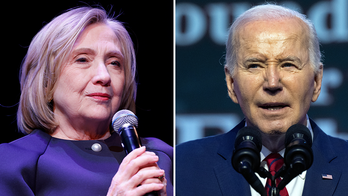Ukrainian President Volodymyr Zelenskyy has rejected the China-Brazil six-point plan to end the Russia-Ukraine war, expressing skepticism about Beijing's motives.
Ukrainian President Volodymyr Zelenskyy has cast doubt on China's "true intent" behind its proposed peace plan, a six-point proposal aimed at ending the ongoing war with Russia. Speaking before the United Nations General Assembly, Zelenskyy questioned the sincerity of China's efforts, highlighting its refusal to condemn Russia's invasion and its continued economic ties with Moscow.
During his address, Zelenskyy emphasized that Russia's aggression cannot be "calmed by talks" and that President Vladimir Putin can "only be forced into peace." He argued that the war, which has entered its third year, has become an international crime that requires decisive action to stop.

Zelenskyy Challenges China's Peace Plan, Questions 'True Intent'
Zelenskyy's rejection of the China-Brazil plan comes as Ukraine prepares to receive the last of the $6 billion in aid approved by the United States earlier this year. The Ukrainian president is expected to discuss a new plan for victory with President Joe Biden on Thursday and reiterate his plea for access to long-range missiles capable of striking deep inside Russian territory.
Zelenskyy's visit to the United States has raised concerns among conservative Ukraine supporters, particularly the Republican Party, which is poised to regain control of the House of Representatives in the November elections. They worry that Zelenskyy's recent statements and actions, such as criticizing former President Donald Trump and attending a campaign rally for Vice President Kamala Harris, could alienate Republicans and jeopardize future support for Ukraine.

Zelenskyy Challenges China's Peace Plan, Questions 'True Intent'
Trump himself has expressed disappointment with Zelenskyy's actions, describing it as "political theater." Trump's former deputy national security adviser, Victoria Coates, echoed these sentiments, stating that Zelenskyy had allowed himself to be "used" in a way that could damage his relationship with the United States.
However, Senator Richard Blumenthal (D-Conn.), a staunch Ukraine supporter, dismissed these criticisms, stating that Zelenskyy was justified in responding to Senator JD Vance (R-Ohio), an outspoken opponent of aid to Ukraine. Vance had proposed a peace plan that would have Ukraine cede territory to Russia, a move that Zelenskyy condemned as "unacceptable."

Zelenskyy Challenges China's Peace Plan, Questions 'True Intent'
Senator Markwayne Mullin (R-Okla.), a close Trump ally, suggested that Zelenskyy should have avoided such political entanglements and instead focused on securing future funding. Mullin believes that Zelenskyy's actions have been counterproductive and could complicate his efforts to gain support from Republicans.
Meanwhile, Senator Eric Schmitt (R-Mo.), a Trump surrogate, asserted that Zelenskyy's criticisms of Trump and his support for Harris crossed a line. He argued that foreign leaders should not engage in partisan politics while on American soil.

Zelenskyy Challenges China's Peace Plan, Questions 'True Intent'
In contrast, Zelenskyy expressed confidence that his relationship with Trump remained positive despite his criticism of Vance. He cited a previous phone conversation with Trump, in which the former president expressed support for Ukraine's cause. Zelenskyy dismissed Vance's words as "dangerous signals" that should not be taken seriously.
As the war grinds on, Ukraine faces an uncertain future. The last of the supplemental aid from the United States is expected to be disbursed over the coming months, and Zelenskyy hopes to secure further support. However, his recent statements could complicate his negotiations with the Republicans, who will soon have significant influence in Congress.










